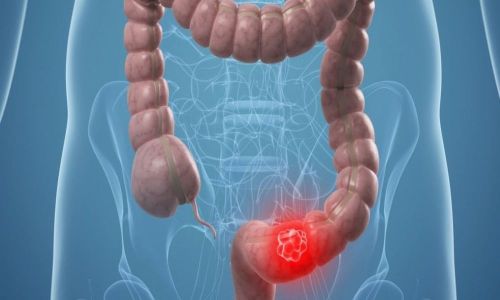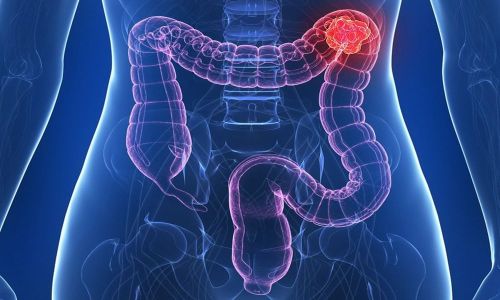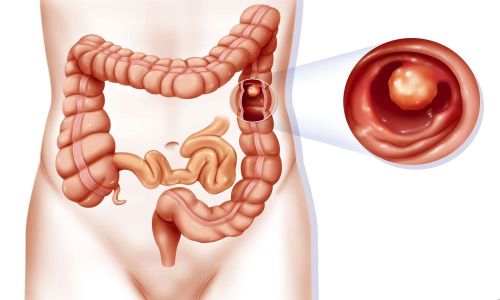It is the surgical removal of cancerous tissue detected on the colon. It generally provides successful results in cases diagnosed early. Colon cancer surgery is important to prevent the spread of the cancerous area and improve the patient's quality of life.
In Which Situations Is Colon Cancer Surgery Necessary?
 Surgery is a surgical intervention to remove cancerous tissue on the colon from the body. It is a surgical method performed to stop the progression of cancer and improve the quality of life. The need for surgery is determined according to the stage of the disease, the level of progression of the cancer and the general health conditions of the patient.
Colon cancer can be completely treated with surgery when detected at an early stage. In these cases, removal of the cancerous tissue is sufficient. No additional treatment is needed. It is critical to prevent cancer from spreading to surrounding tissues.
If the cancer has spread to a larger part of the colon or affected surrounding lymph nodes, surgical intervention is essential. In this case, the surrounding healthy tissue is usually removed along with the cancerous tissue. Additionally, in advanced cases, surgical treatment is supported by additional treatments.
Colon cancer can cause problems such as blockage or perforation in the intestines. Such complications require prompt surgical intervention. In case of obstruction, surgery is performed to restore bowel movements.
Surgery may be preferred if cancer spreads to other organs. This surgery is performed to both control the disease and extend the life of the patient.
Colon cancer surgery is a vital treatment method to prevent cancer from progressing. Therefore, treatment should be done at the right time.
Surgery is a surgical intervention to remove cancerous tissue on the colon from the body. It is a surgical method performed to stop the progression of cancer and improve the quality of life. The need for surgery is determined according to the stage of the disease, the level of progression of the cancer and the general health conditions of the patient.
Colon cancer can be completely treated with surgery when detected at an early stage. In these cases, removal of the cancerous tissue is sufficient. No additional treatment is needed. It is critical to prevent cancer from spreading to surrounding tissues.
If the cancer has spread to a larger part of the colon or affected surrounding lymph nodes, surgical intervention is essential. In this case, the surrounding healthy tissue is usually removed along with the cancerous tissue. Additionally, in advanced cases, surgical treatment is supported by additional treatments.
Colon cancer can cause problems such as blockage or perforation in the intestines. Such complications require prompt surgical intervention. In case of obstruction, surgery is performed to restore bowel movements.
Surgery may be preferred if cancer spreads to other organs. This surgery is performed to both control the disease and extend the life of the patient.
Colon cancer surgery is a vital treatment method to prevent cancer from progressing. Therefore, treatment should be done at the right time.
How is Colon Cancer Surgery Performed?
 Surgery is a procedure performed to remove the cancerous area. Surgical techniques are used to preserve the functionality of the digestive system. The surgical method is planned according to the patient's condition. Basically, open surgery or laparoscopic (closed) methods are used.
Before the surgery, the patient's general health condition is evaluated. Detailed tests are performed. A special diet and intestinal cleansing are provided to empty the intestines. The anesthesiologist determines the type of anesthesia to be used during surgery.
• In the open surgery method, a wide incision is made in the abdomen to access the cancerous area. Cancerous tissue is removed by surgical intervention. In addition, surrounding healthy tissue and lymph nodes are also removed. The remaining intestinal ends are stitched together and the digestive system is reconstructed.
• In the laparoscopic surgery method, small incisions are made in the abdomen. Camera and surgical instruments are inserted through the incisions. Surgery is performed with these instruments. This method is preferred because its recovery time is shorter. At the same time, the low risk of complications makes this method advantageous.
After the surgery is completed, the patient is taken to the intensive care unit or the normal ward. In the first days, intravenous nutrition is administered and the digestive system is operated slowly. The patient is checked regularly against the risk of infection and the healing process is monitored.
Colon cancer surgery is an effective treatment method when performed with the right techniques. It is important to improve the patient's quality of life and minimize the risk of recurrence of the disease.
Surgery is a procedure performed to remove the cancerous area. Surgical techniques are used to preserve the functionality of the digestive system. The surgical method is planned according to the patient's condition. Basically, open surgery or laparoscopic (closed) methods are used.
Before the surgery, the patient's general health condition is evaluated. Detailed tests are performed. A special diet and intestinal cleansing are provided to empty the intestines. The anesthesiologist determines the type of anesthesia to be used during surgery.
• In the open surgery method, a wide incision is made in the abdomen to access the cancerous area. Cancerous tissue is removed by surgical intervention. In addition, surrounding healthy tissue and lymph nodes are also removed. The remaining intestinal ends are stitched together and the digestive system is reconstructed.
• In the laparoscopic surgery method, small incisions are made in the abdomen. Camera and surgical instruments are inserted through the incisions. Surgery is performed with these instruments. This method is preferred because its recovery time is shorter. At the same time, the low risk of complications makes this method advantageous.
After the surgery is completed, the patient is taken to the intensive care unit or the normal ward. In the first days, intravenous nutrition is administered and the digestive system is operated slowly. The patient is checked regularly against the risk of infection and the healing process is monitored.
Colon cancer surgery is an effective treatment method when performed with the right techniques. It is important to improve the patient's quality of life and minimize the risk of recurrence of the disease.
Recovery Process After Colon Cancer Surgery
 The recovery process after colon cancer surgery may vary for each patient. This process depends on factors such as the patient's health condition, the type of surgery and the stage of the cancer. This process may require emotional and psychological support as well as physical recovery. Recovery can be examined in two stages: the period in the hospital and the ongoing care process at home.
After surgery, the patient usually stays in the hospital for a few days. During this period, vital signs are monitored and the intestines are waited to start working. In the first days, a liquid diet is applied. Then slowly introduce solid foods.
The patient should be carefully monitored for infection risk. Wound care should be done regularly. Additionally, the patient is encouraged to walk, as this increases blood circulation, speeding up recovery and reducing the risk of complications.
The healing process at home may take several weeks. During this period, the patient should consume low-fiber and light foods. It should not strain the digestive system. Attention should be paid to the hygiene of the surgery area.
If any signs of infection occur, a doctor should be consulted. Patients can start doing their daily activities again within 4-6 weeks. However, heavy work and activities should be avoided.
In the postoperative period, the patient can receive support from a dietitian and physical therapist. Additionally, psychological counseling or participation in support groups may be recommended for emotional well-being.
Regular check-ups are very important after colon cancer surgery. It is necessary to monitor recovery and assess the risk of cancer recurrence.
The recovery process after colon cancer surgery may vary for each patient. This process depends on factors such as the patient's health condition, the type of surgery and the stage of the cancer. This process may require emotional and psychological support as well as physical recovery. Recovery can be examined in two stages: the period in the hospital and the ongoing care process at home.
After surgery, the patient usually stays in the hospital for a few days. During this period, vital signs are monitored and the intestines are waited to start working. In the first days, a liquid diet is applied. Then slowly introduce solid foods.
The patient should be carefully monitored for infection risk. Wound care should be done regularly. Additionally, the patient is encouraged to walk, as this increases blood circulation, speeding up recovery and reducing the risk of complications.
The healing process at home may take several weeks. During this period, the patient should consume low-fiber and light foods. It should not strain the digestive system. Attention should be paid to the hygiene of the surgery area.
If any signs of infection occur, a doctor should be consulted. Patients can start doing their daily activities again within 4-6 weeks. However, heavy work and activities should be avoided.
In the postoperative period, the patient can receive support from a dietitian and physical therapist. Additionally, psychological counseling or participation in support groups may be recommended for emotional well-being.
Regular check-ups are very important after colon cancer surgery. It is necessary to monitor recovery and assess the risk of cancer recurrence.


